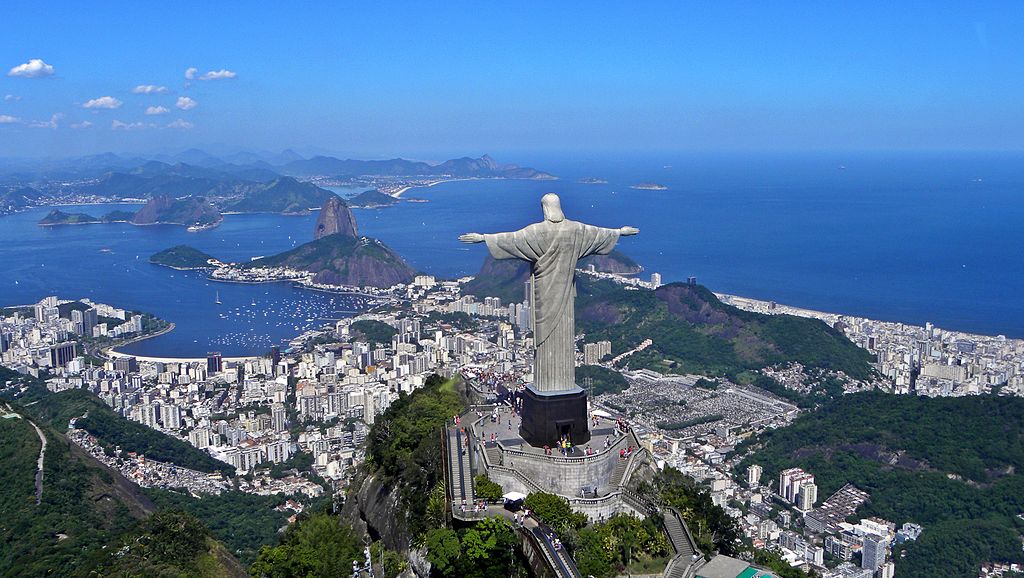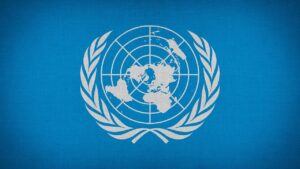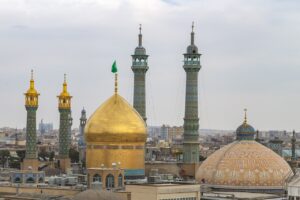
Christ on Corcovado mountain | <a href="https://creativecommons.org/licenses/by-sa/3.0/deed.en">CC BY 3.0 Unported</a> Chronus via <a href="https://commons.wikimedia.org/wiki/File:Christ_on_Corcovado_mountain.JPG">Wikimedia Commons</a>

Diesesmal zwitschert der Sperling mit den sich 2012 gegründeten Brasilianischen Piraten. , ein relativ neues aber aktives Mitglied, war so nett und hat ein paar Fragen beantwortet.
Introduction (from Moises)
The official foundation of the Pirate Party took place in the National Convention of Foundation, between July 27 and 28, 2012, at Soledade’s Social Headquarters, in Recife. About 130 activists and sympathizers from 15 Brazilian states met to discuss the final proposals of the statute and the party program, and on the last day of the event, the charter of foundation was signed.
You can find more about us, our proposals and everything else in the site (in Portuguese):
- https://partidopirata.org/quem-somos/estrutura-nacional/
- https://partidopirata.org/quem-somos/estrutura-nacional/documentos/estatuto/
- https://partidopirata.org/quem-somos/estrutura-nacional/documentos/programa/
- https://partidopirata.org/quem-somos/estrutura-nacional/documentos/diretrizes/
- https://partidopirata.org/quem-somos/estrutura-nacional/documentos/manifesto-v2-0/
- https://partidopirata.org/quem-somos/estrutura-nacional/documentos/carta-de-principios-v1-0/
- https://partidopirata.org/quem-somos/estrutura-nacional/documentos/estatuto/
- https://partidopirata.org/quem-somos/estrutura-nacional/documentos/programa/
The Interview
Sperling: Hello, how are you? And what are you doing in “real life”?
Moises: Hi, i’m fine, thanks. My name is Moises Matias and actually I’m a volunteer in a refugee assistance network in my city ( Campinas). I also divide my time being a student ( in International relations) and a free professional.
Sperling: Please tell me, what is your job in the Brazil Pirates and when/how have you got it?
Moises: Actually, i’m a new associate, so, I work in the most, translating articles and being a helper in any project where I am needed.
Sperling: How are the Brazilian Pirates organized?
Moises: The Pirates are a counter proposal to the politics in Brazil, so we are organized in city groups, defined in states and areas (south, north, Southwest..). In a short, we are divided in a General Secretariat, the National Coordination, the National Treasury and the General Assembly, where we have a meeting in a space of 2 years. We also have the Crisis management, national coordination and work groups.
Sperling: How many pirates are on board, can you tell me something about your members?
Moises: I’m not sure, but we have a good number of associates and helpers from many places.
Sperling: What kind of tools do you use for the internal organization of your political work?
Moises: We use most commonly the Loomio, Mumble, and Trello. We also have the etherpads, email lists and other tools to help us in our work. (As far as I know)
Sperling: Do you use an online-voting tool? What are the main arguments pro/contra online voting?
Moises: Yes, we have one. We have few arguments about it. Just sometimes, about organization in general, but in all, things work well.
Sperling: Which channels you use in social media or the internet for contact with non-pirates, (how) do you reach the people outside?
Moises: Generally speaking, the most used are Telegram message server and Facebook ( since it’s the most commonly used socialweb around here). We are discussing other methods to work about it, too.
Sperling: The Brazilian political system is not well known in Germany, can you explain it a little bit? Is there a chance for small parties to get involved in the system?
Moises: In a short explanation Brazil’s politics are organized in a framework of a federal presidential representative democratic republic, where, the President is both head of state and head of government, and in a system of a multi-party system. The political and administrative organization of Brazil comprises the federal government, the 26 states and a federal district, and the municipalities.
In practice, we have a legislative, judiciary and a executive – basically, the legislative are composed by state deputies and senators (those are divided in the areas of states and cities councils too), Judges and ministries and finally the presidency. There’s the possibility for a small party to take part in this system, but there’s first bureaucracy to be done, like a number of signatures, and a register in the electoral system.
Sperling: Can you tell me which positions are the “central ideas” of the Brazilian Pirates? How do you communicate them to your voters?
Moises: We work for a open and democratic society, where people are able to have a real participation in it. We also have in our core ideas the common questions and banners of the pirates internationally, and we consider our internal dynamics around here too.
Sperling: In the news, we hear things about Dilma Rousseff, Michel Temer, the “Petrobras-Conections” and corruption and many more, but it is not easy to understand what really happens. Can you give as a short “briefing” what is going on? Is there a position from the Brazilian Pirates?
Moises: Basically, it’s a political conflict happening, and a political war for power; which is common in our history as a democratic country. PT ( Partido dos trabalhadores- worker’s party) has been in power for 13 years, since president Dilma was impeached. She was elected through a popular vote, but it was unpleasant to some sectors of society. So, there was a media, and parties mobilization for the Impeachment of the president.
Since the system is representative, there are many problems related to corporation lobbies, corruption of many kinds and a bad administration, caused by years of political conflicts, problems and interest based alliances between the parties, so common to our country and neighbours. But this is a work of decades of bad governments and problematic political systems, which seems to be contested by the people in an ever growing insatisfaction.
In general, Brazilian people don’t have a direct and true representation, since many politics work for themselves. That’s why now many people are questioning the system and it’s structure as a whole. (Not the official position of the party)
Sperling: What is/are your most interesting political achievement/s?
Moises: The Party in Brazil is young and we are growing and maturing ourselves each time. One of our big conquests was the manifesto against the unregulation of the prices that the companies asked for the Internet, in 2016.
Sperling: Did the Media report about you? Did they report of the success of the Iceland pirates?
Moises: Unfortunately, we heard only a few times about the Iceland Pirates. I believe that Brazilian media could not comprehend the dynamics of what was happening there. While the idea of the Pirate party is relatively new around the world, in Brazil it is especially new. As the political discussions it generates, slowly and progressively this is changing. We are now working to legalize the party as a official party in Brazil and in practical works with the common demands in our respectively areas.
Sperling: Is there anything you want to tell us about you, the Brazilian Pirates, the universe or the rest of all?
Moises: Well, basically, I’m still a young man, and I recently started in the party. I believe that we have a lot of work to do since we need to bring the discussions of an alternative way of politics to the Brazilian people. Brazilian democracy is a recent history, too. We just have it for around 31 years by now… And many things need to be discussed and worked in those topics.
I’m positive with our discussions and I believe in the alternative forms of democracy, especially the direct and open democracy. I think it’s the prospect of the future, since the way it is nowadays is archaic and in a conflict with the zeitgeist of today. We need to rethink it and guarantee it for the people and the social groups, so they can have it and work on it in the ways of self management and full autonomy, respecting the achievements we reached as society by now in the individuality and collectively, and bringing a true freedom- of information, knowledge and as a human being in general.
I believe in the Pirates as one of the tools for a new, democratic, open, fair and inclusive for all. And to bring this discussion to the society.
Sperling: Thank you for your time, we hope we hear about you in the coming years!
Redaktionsmitglied Sperling
Redakteur seit 2011, Kernteam der Redaktion seit 2013. De facto "Leitung" ab 2016, irgendwann auch offiziell Chefredakteur - bis 2023. Schreibt nur noch wenn ihm die Laune danach steht, zahlt aktuell die Infrastruktur der Flaschenpost, muss aber zum Glück nicht haften 🙂








